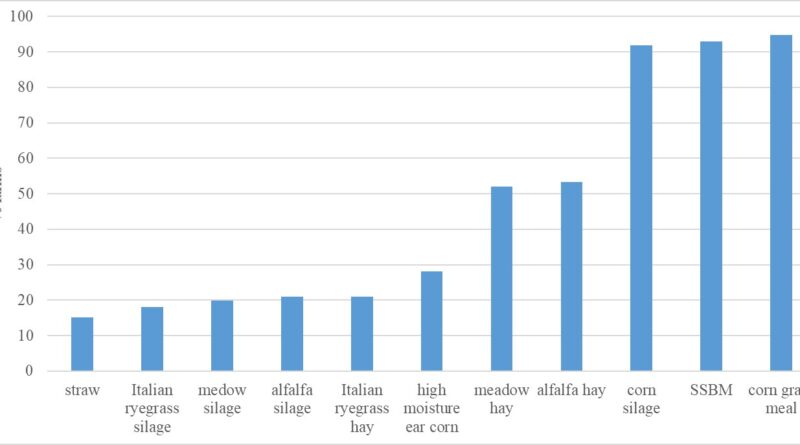AN ENVIRONMENTALLY FRIENDLY MILK
Besides being one of the best human food, complete and highly nutritious, milk is also little environmentally impacting, per kg of milk or of milk-protein, in terms of greenhouse effect due mainly to carbon dioxide (CO2) and methane, computed as CO2 equivalent to equalize molecules of different warming potential.
A survey and study performed by our department on 171 dairy farms in Lombardy showed that it is possible to reduce the environmental impact by over 20% (from 17 to 13 kg CO2 equivalent daily) of the diet fed to dairy cows by formulating balanced rations, carefully choosing the best forage, and limiting the amounts of whole plant maize (maize silage) and soybean meal (SBM), a high-protein feed imported mainly from America. It should be underlined that the contribution of the diet to the environmental impact of milk is among the most significant and that maize silage and SBM are among the feeds more utilized in Po plain dairy farms (figure), hence improvement in reducing the environmental impact is promising.
In conclusion, let us not believe people claiming that agriculture and animal husbandry are the most polluting human activities: by contrast, a good management of both fields and stable help the environment, besides supplying us the food we need.
Figure – Utilization of main ingredients (% of farms that use the feed) for lactating cow diet formulation. SBM = soybean meal.
Reference:
GISLON G., BAVA L., COLOMBINI S., ZUCALI M., CROVETTO G.M., SANDRUCCI A. (2020). Looking for high-production and sustainable diets for lactating cows: a survey in Italy. «J. Dairy Sci.», 103, x–x. DOI: https://doi.org/10.3168/jds.2019-17177

